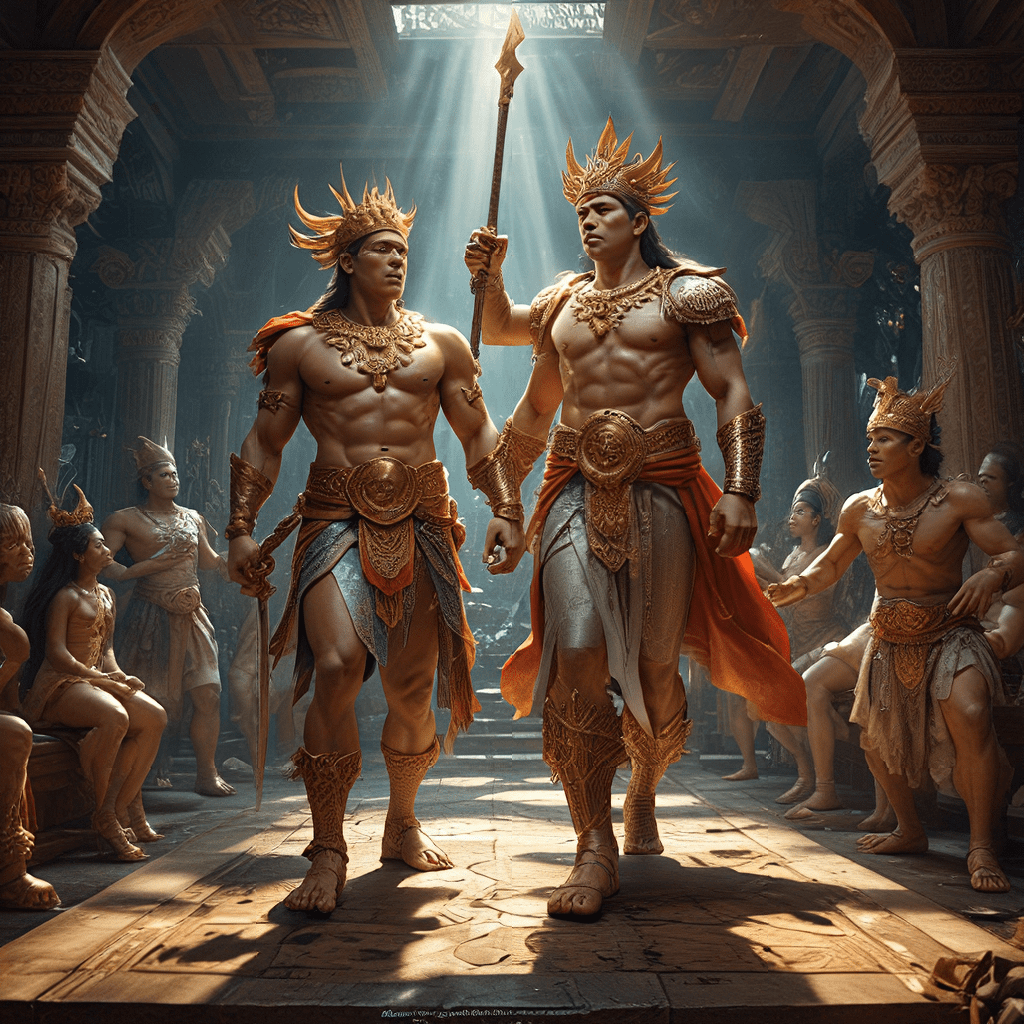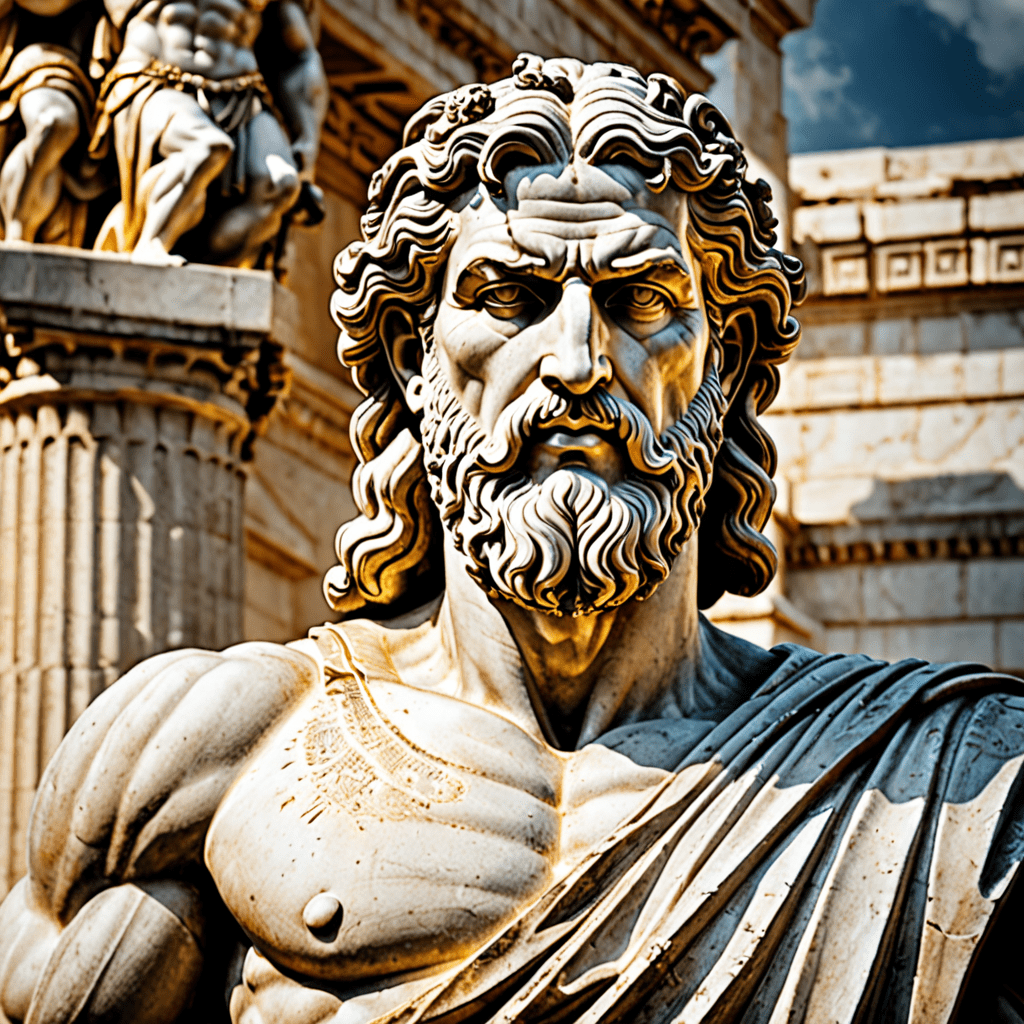Divine Love Affairs: The Gods’ Most Scandalous Romances
Introduction: The Allure of Divine Romance
The concept of divine love affairs has captivated human imagination for centuries, serving as both entertainment and moral lessons. These stories, steeped in mythology, explore the intricacies of love as experienced by gods and goddesses, often reflecting the complexities of human emotions. From passionate entanglements to tragic separations, the narratives surrounding divine romance are not only fascinating tales but also essential components of cultural narratives that speak to the human experience.
The Nature of Divine Love: A Double-Edged Sword
Divine love is often depicted as an overwhelming force, capable of inspiring great deeds or causing devastating chaos. The characteristics of such love include:
- Passion: Divine love affairs are often intense, filled with longing and desire that transcend mortal limitations.
- Betrayal: Many tales reveal the darker side of love, where infidelity and betrayal lead to conflict among the gods.
- Chaos: The consequences of these love affairs frequently result in turmoil not just for the gods, but for the world around them.
These stories serve as allegories for human relationships, illustrating the joys and tribulations that accompany love.
Zeus and His Many Lovers: A Greek Saga of Scandal
In Greek mythology, Zeus is infamous for his numerous romantic escapades, which often led to scandalous outcomes. His affairs with mortal and divine beings alike highlight the complexities of love and power. Key figures in Zeus’s romantic history include:
- Hera: Zeus’s wife, who experiences the brunt of his infidelities, often leading to her wrath and revenge.
- Europa: A mortal princess whom Zeus seduces by transforming into a bull, showcasing the lengths he would go to for love.
- Leda: The queen of Sparta, who becomes another victim of Zeus’s charms, resulting in the birth of children who would change the course of Greek mythology.
The implications of Zeus’s escapades extend beyond personal drama; they shape the narratives surrounding Greek mythology and influence human understanding of relationships marked by power and betrayal.
Isis and Osiris: Love Beyond Death
The love story of Isis and Osiris is a poignant tale that transcends the boundaries of life and death. In ancient Egyptian mythology, Isis’s devotion to her husband Osiris is profound, as she seeks to resurrect him after his murder by Set. Their relationship embodies themes of:
- Resurrection: Isis’s determination to bring Osiris back to life illustrates the power of love to overcome death.
- Loyalty: Isis’s unwavering loyalty reflects the ideal of fidelity in romantic relationships.
This story holds great cultural significance in ancient Egypt, symbolizing the cyclical nature of life, death, and rebirth, and reinforcing the importance of love in the human experience.
The Tragic Love of Orpheus and Eurydice
The myth of Orpheus and Eurydice is a haunting tale that explores the depths of love and loss. Orpheus, a gifted musician, descends into the Underworld to rescue his beloved Eurydice after her untimely death. This story delves into:
- Loss: The profound grief experienced by Orpheus drives him to defy the natural order.
- Longing: His desire to be reunited with Eurydice showcases the lengths one will go for love.
- The power of love: Orpheus’s music has the ability to charm even the hearts of Hades and Persephone.
Orpheus and Eurydice’s tragic love story has influenced countless works of literature and art, epitomizing the idea that true love can endure even the harshest of circumstances.
Shiva and Parvati: A Love that Defies Convention
In Hindu mythology, the love story of Shiva and Parvati is emblematic of devotion and sacrifice. Parvati, the reincarnation of Sati, embarks on a transformative journey to win Shiva’s heart. Their relationship encompasses themes of:
- Devotion: Parvati’s unwavering commitment to Shiva signifies the strength of love and dedication.
- Balance of power: Their union represents the harmony between masculine and feminine energies.
The significance of Shiva and Parvati’s love story lies in its portrayal of love as a force for transformation, illustrating how devotion can lead to profound personal and cosmic balance.
The Scandalous Affairs of Freyja: Norse Goddess of Love
Freyja, the Norse goddess of love, beauty, and war, is known for her romantic escapades that often intertwine love and conflict. Her affairs have significant implications, reflecting:
- Femininity and desire: Freyja embodies the complexities of female desire and autonomy in a patriarchal society.
- The intersection of love and war: Freyja’s relationships often bring about chaos, illustrating the volatile nature of love.
Through Freyja’s stories, Norse mythology conveys cultural reflections on femininity, desire, and the dual nature of love, both nurturing and destructive.
The Forbidden Love of Cupid and Psyche
The tale of Cupid and Psyche is a timeless story that explores the trials of love. Psyche, a mortal woman, must navigate a series of challenges to be with her beloved, Cupid. Their story highlights:
- Trust: Psyche’s journey is fraught with tests that challenge her faith in Cupid.
- Transformation: The trials she faces ultimately lead to her transformation and ascendance to divinity.
Cupid and Psyche’s love story has become an enduring legacy in Western storytelling, symbolizing the idea that true love can overcome obstacles and lead to personal growth.
Divine Love Affairs in Various Cultures: A Comparative Analysis
Love affairs among gods are prevalent across various mythologies, each reflecting unique cultural beliefs and values. A brief overview includes:
- Hindu Mythology: The tales of Radha and Krishna demonstrate divine love intertwined with themes of longing and devotion.
- Egyptian Mythology: The relationship between Hathor and Horus emphasizes the connection between love and protection.
- Norse Mythology: The love stories of Baldr and Nanna reveal themes of sacrifice and fate.
- Roman Mythology: The escapades of Venus illustrate the complexities of desire and power dynamics.
Across cultures, common themes emerge, such as the interplay of love and power, the trials faced by lovers, and the transformative nature of love. These narratives not only entertain but also offer profound insights into the human condition, illustrating that love, whether divine or mortal, remains a force that shapes our existence.



